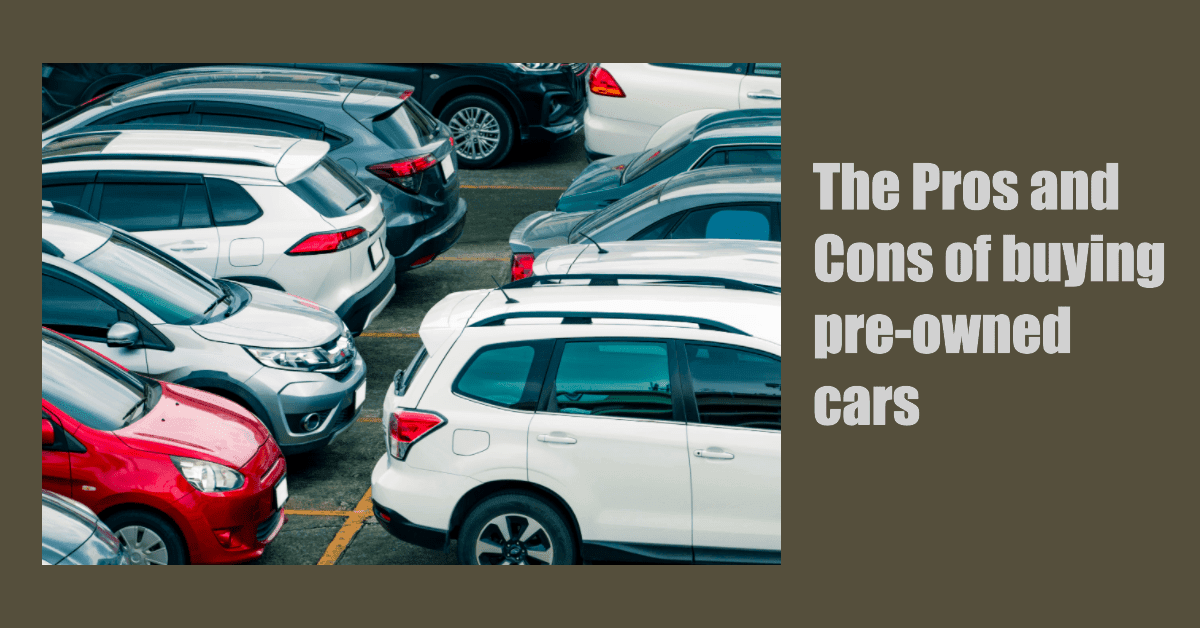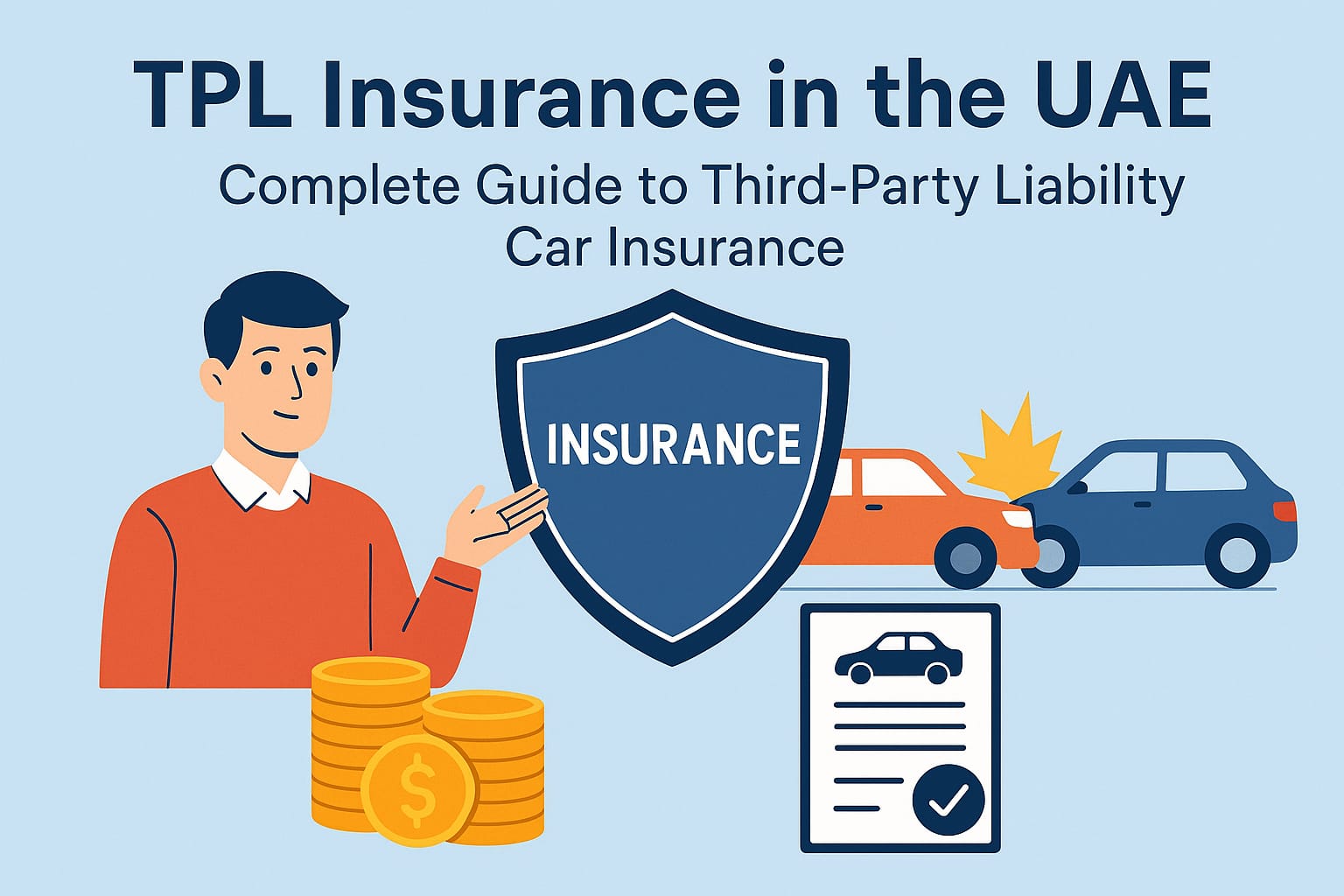
If you’re thinking about getting a car, you might have come across the idea of buying a pre-owned one. Pre-owned cars are vehicles that have been used by someone else before. They can be a tempting option because they often cost less than brand-new cars. But, like everything, there are both good and not-so-good sides to buying pre-owned cars.
In this blog, we’ll explore the pros and cons of going for a pre-owned car, so you can make a smart choice when it comes to your next set of wheels. Whether you’re a first-time buyer or just looking for an affordable option, read on to learn more about the ups and downs of purchasing a pre-owned car.
Pros of Buying Pre-owned Cars

Cost Savings
- Depreciation benefits: One of the biggest advantages of buying a pre-owned car is that you avoid the initial depreciation hit. New cars lose a significant portion of their value in the first few years, but pre-owned cars have already gone through this stage. This means you won’t lose as much money in resale value if you decide to sell the car later on.
- Lower purchase price: Pre-owned cars generally come with a lower price tag compared to brand-new ones. This affordability allows you to get a vehicle with more features and options within your budget. You might even be able to afford a model that would be out of reach if it were new.
Wider Variety and Access to Higher-end Models
When you consider pre-owned cars, you open up a vast array of options from different years, makes, and models. You may find discontinued models that are no longer available as new, and you might have access to higher-end vehicles at a fraction of their original cost.
Reduced Insurance Costs
Pre-owned cars can lower insurance costs because their value has already decreased compared to brand-new cars. Insurance premiums are often based on the car’s value, among other factors. Since pre-owned cars have gone through depreciation, their value is less than new cars. This means the insurance company would pay less money to replace the car if it gets stolen or totaled in an accident.
With a lower car value, the insurance company takes on less risk, which results in lower insurance premiums for pre-owned cars. So, if you choose a pre-owned car over a new one, you may save money on insurance costs, making it a more budget-friendly option. However, remember that other factors can affect insurance rates, such as the car’s make, model, age, and driving history, so it’s always a good idea to compare insurance quotes before making a decision.
Lower Registration Fees and Taxes
Pre-owned cars have lower registration fees and taxes mainly because they have already lost some of their value. When you register a car or pay taxes on it, the cost is based on its current worth. Brand new cars have a higher value, so the registration fees and taxes for them are usually higher. However, pre-owned cars have already gone through depreciation, meaning their value is lower.
As a result, when you register a pre-owned car or pay taxes on it, the fees and taxes are calculated based on this lower value. This leads to paying less, making pre-owned cars more affordable in this aspect. Keep in mind that registration fees and taxes can vary depending on where you live, so the amount of savings may differ from place to place.
Verified Vehicle History Reports
Reputable pre-owned car dealers and sellers often provide vehicle history reports. These reports give you essential information about the car’s past, including accident history, title issues, and mileage verification. Having access to this data helps you make an informed decision and avoid potential pitfalls.
Certified Pre-owned Programs
Some car manufacturers offer certified pre-owned programs. These programs typically include a thorough inspection, necessary repairs, and an extended warranty. Buying a certified pre-owned car can give you added peace of mind; as you know, the vehicle has met certain quality standards.
Cons of Buying Pre-owned Cars

Buying a pre-owned car can have some downsides that you need to know about. Let’s explore the cons to help you make a wise decision:
Uncertain Vehicle Condition
- Wear and tear: Pre-owned cars have already been driven by someone else, so they may have wear and tear from regular use. This means some parts might not be in perfect condition and could need repairs sooner than a new car.
- Potential mechanical issues: Since pre-owned cars have been on the road, they might develop mechanical problems over time. These issues could be hidden, and you might not know about them until after you buy the car.
Limited or No Warranty Coverage
Pre-owned cars often have limited or no warranty coverage. Unlike new cars that usually come with a warranty to cover certain repairs for a specific period, pre-owned cars might not have the same protection. If something goes wrong with the car after you buy it, you could be responsible for the repair costs.
Outdated Technology and Features
Older pre-owned cars might have different technology and features than newer models offer. For example, they might need modern infotainment systems, safety features, or fuel-efficient engines. If having the latest technology is important to you, you might need a pre-owned car to meet your expectations.
Higher Interest Rates and Financing Challenges
Getting financing for a pre-owned car can sometimes take more work than for a new car. The interest rates on loans for pre-owned cars might be higher because lenders consider them riskier. This means you could end up paying more in interest over the loan’s term.
Fewer Customization Options
With a pre-owned car, you might have limited customization options compared to buying a new car. Since the previous owner might have made modifications or changes, you might not get the exact features or color you want.
Potential Hidden Costs (e.g., Maintenance, Repairs)
Pre-owned cars might require more maintenance and repairs than new cars. As they age, certain parts may wear out, and you may need to spend more money on fixing them. These hidden costs could add up over time and affect your budget.
Factors to Consider Before Buying a Pre-Owned Car

Budget and Affordability
The first and most important thing to think about is how much money you can spend on a used car. Figure out what you can afford without putting too much pressure on your finances. Remember, there are other costs like insurance, taxes, and repairs, so consider those too. Sticking to your budget will help you choose the cars you can afford and keep you from having money problems later on.
Vehicle Inspection and Test Drive
- Inspection: Look closely at the car and take it for a test drive. If you’re not sure about cars, bring a mechanic you trust to check it out. They can tell you about its condition and any problems it might have.
- Watch for signs: Pay attention to signs of wear and tear, rust, and if the car has been in any accidents. These things can affect how well the car works.
- Test drive: Take the car for a drive to see how it feels on the road. This way, you can see if it drives the way you like.
Research and Comparison
When you’re thinking about buying a used car, there are some important things to consider:
- Prices: Check online to see how much the car you want usually costs. This way, you’ll know if the seller is asking for a fair price. And don’t be afraid to negotiate with them to get a better deal.
- Mileage: Pay attention to how many miles the car has been driven. Less mileage generally means less wear and tear, which is good for the car’s condition. But sometimes, a well-taken-care-of car with slightly higher mileage can still be reliable.
- Reliability and consumer reviews: Find out if the car you like is known for being dependable. Look for reviews from other people who have owned the same model to learn about any potential problems and how satisfied they were with the car.
Certified Pre-Owned Vs. Non-Certified Pre-Owned
When you’re looking at pre-owned cars, there are two types: Certified Pre-Owned (CPO) and non-certified. Let me explain what’s special about each. CPO cars are checked carefully by the manufacturer or dealership, and they meet certain standards. This means they are more reliable, and you might get an extended warranty for extra protection.
Non-certified cars don’t have these benefits, but they could be cheaper. It depends on what you prefer and how much assurance you want.
Dealer vs. Private Seller
When you’re thinking about where to buy a car, there are two main options: a dealership or a private seller. Let’s talk about the good and not-so-good things about both.
Dealerships have a lot of cars to choose from, and they can help you with financing and sometimes offer warranties. They also have to follow certain rules to protect customers. But the downside is that their prices might be higher.
Private sellers, like regular people selling their cars, might give you a better price, and you can negotiate with them more freely. However, buying from a private seller has some risks because there are fewer protections for you as a buyer.
Tips for a Successful Pre-owned Car Purchase

Before buying a used car, there are some important things to do. First, ask for the car’s history report from services like Carfax or AutoCheck. This report tells you about the car’s past, like how many owners it had, if it was in any accidents and its mileage.
Next, get a mechanic you trust to check the car. Even if it looks good, a mechanic can find hidden problems the seller might not know about. Don’t be afraid to talk about the price with the seller. If the history report or inspection reveals any issues, you can use that to negotiate a fairer price.
It’s good if the car has a detailed maintenance history. That means the previous owner took care of it well, which can make it more reliable. Ask for records and receipts to verify this.
Also, check if there are any recalls for the car. Recalls are safety issues identified by the manufacturer, and they should be fixed before you buy the car. You can do this by checking the National Highway Traffic Safety Administration (NHTSA) website or the car manufacturer’s website.
Finally, before signing the purchase contract, read it carefully. Make sure everything you agreed upon, like warranties and conditions, is written correctly. If there’s anything you don’t understand, ask the seller or a legal expert to explain it to you. Doing these things will help you make a smart choice when buying a pre-owned car.
Conclusion
To wrap things up, buying a used car has good and bad sides. On the positive side, it can save you money on the upfront cost and insurance. There are also many options to choose from, so you might find a car that’s just right for you. But remember, whether you should get a used car or not depends on your own situation, what you want, and how much risk you’re okay with. So, think about what’s best for you before making a decision.







